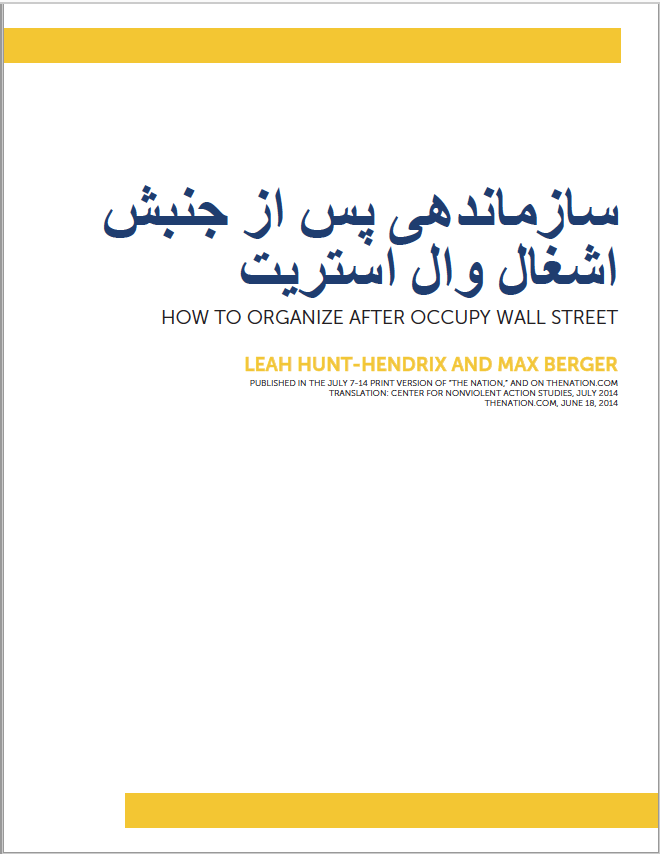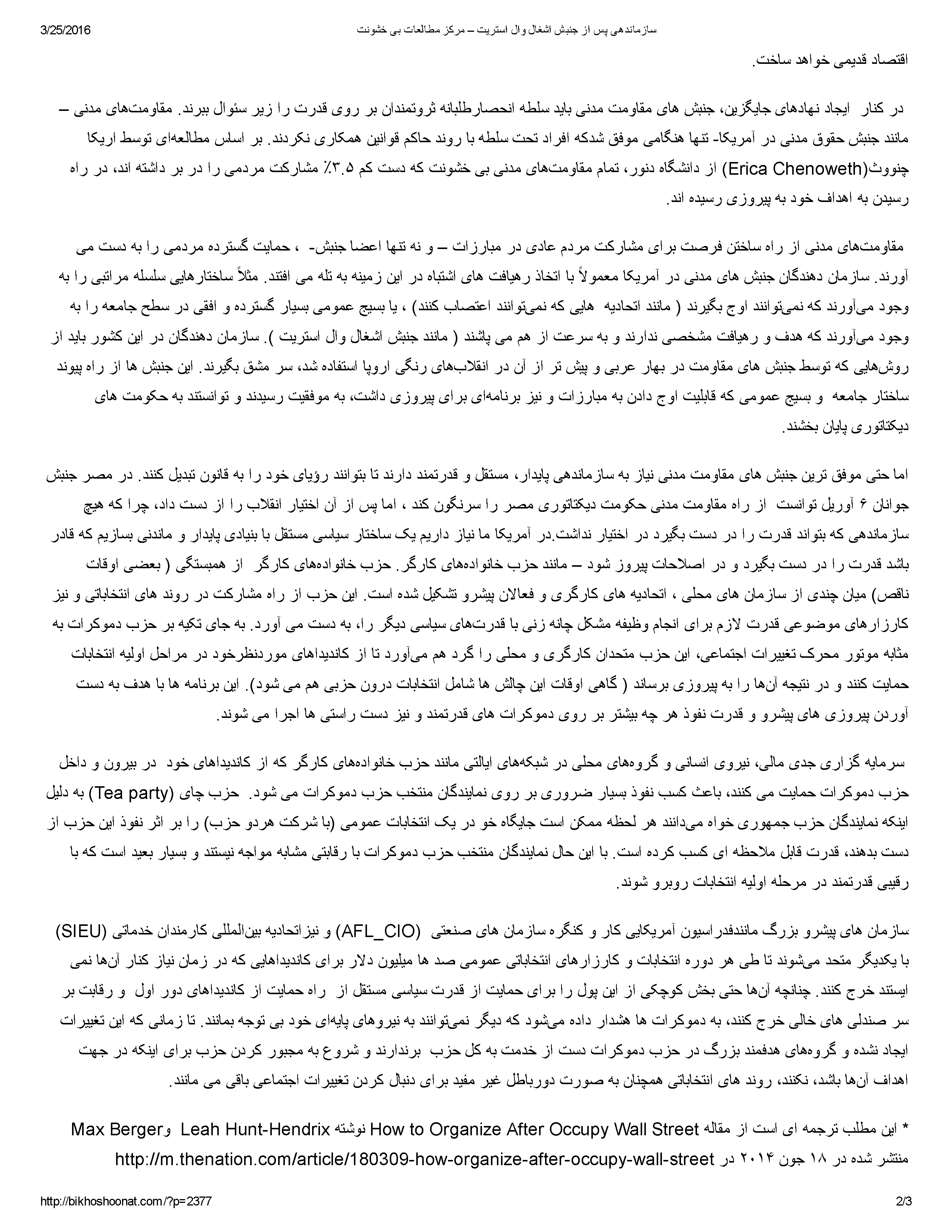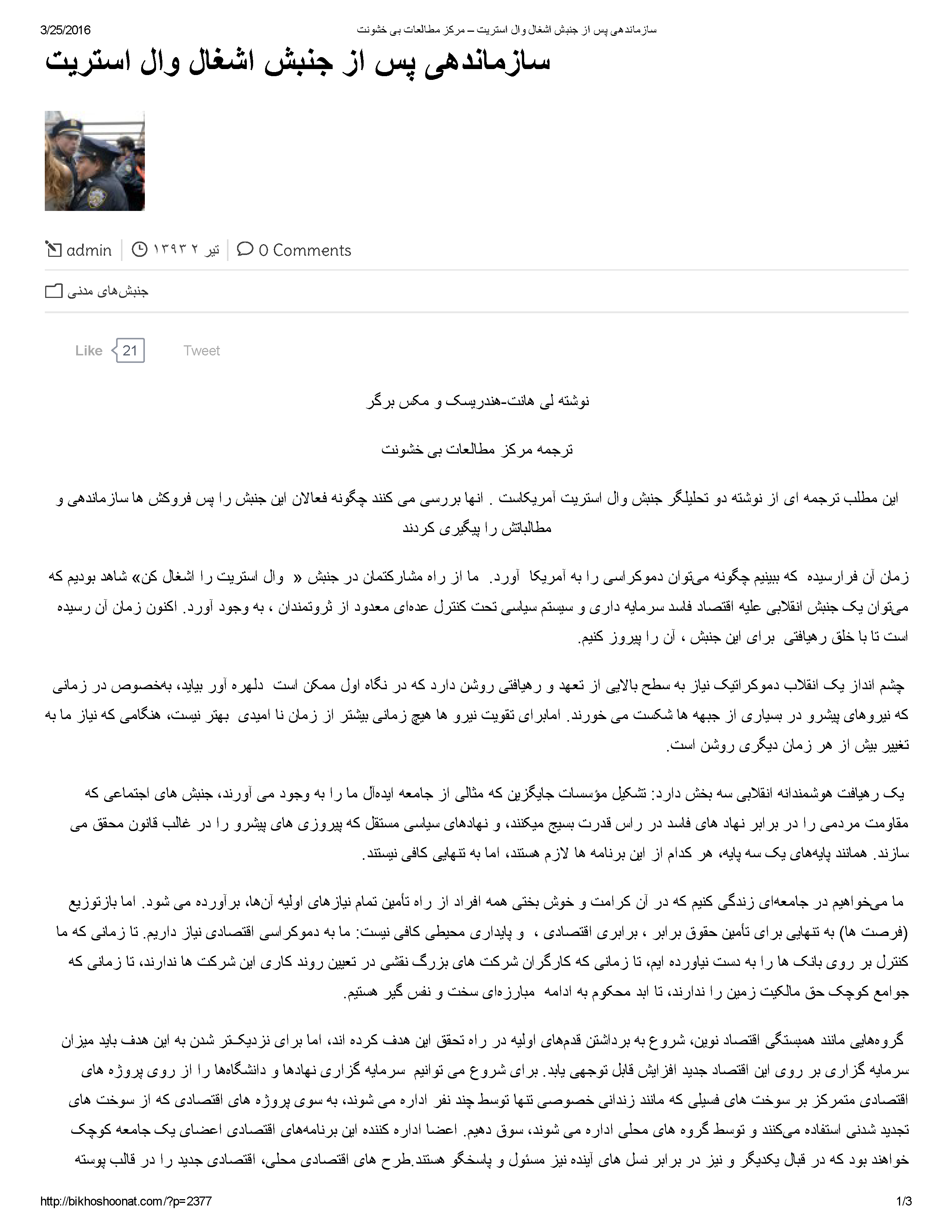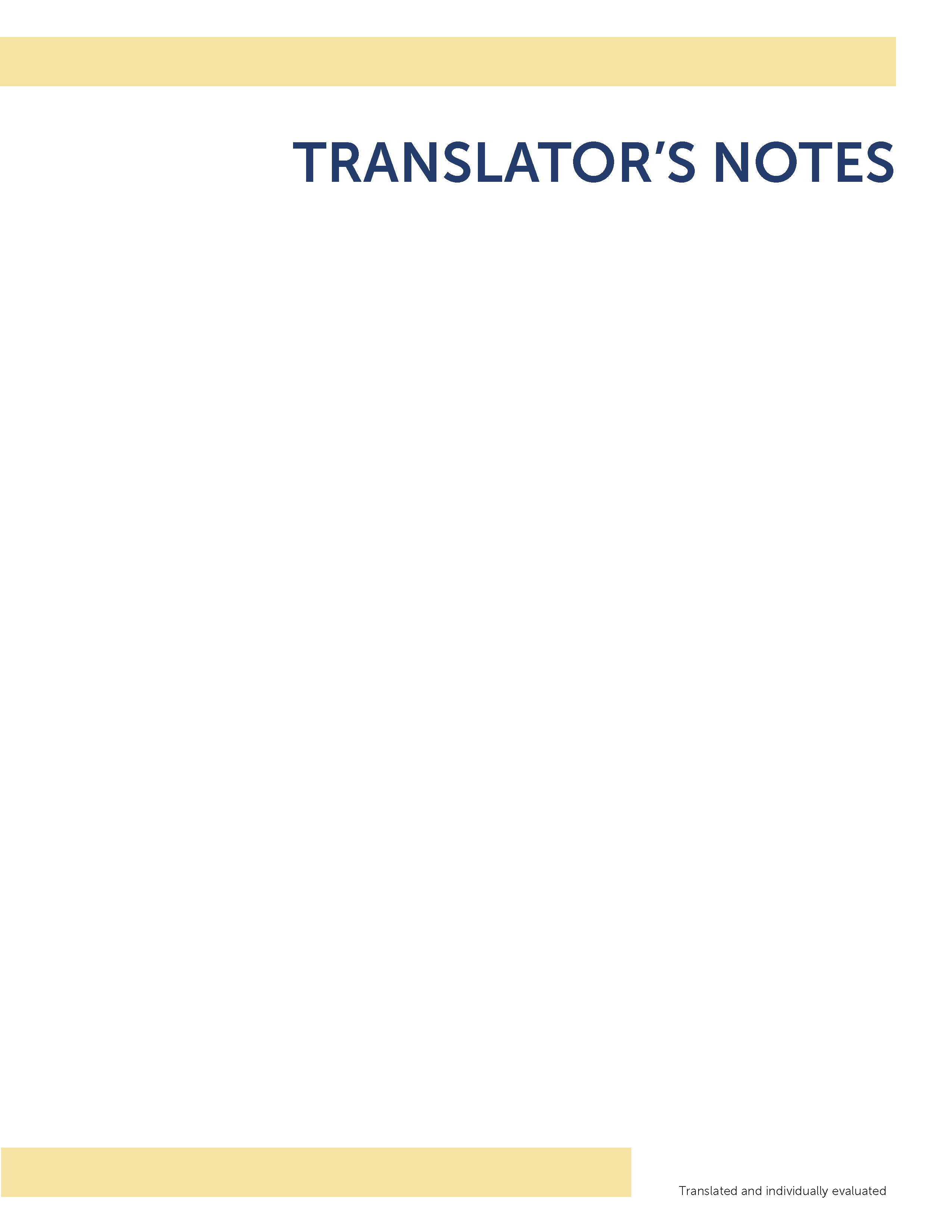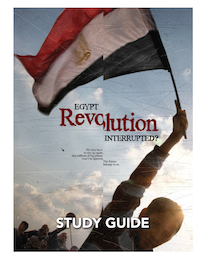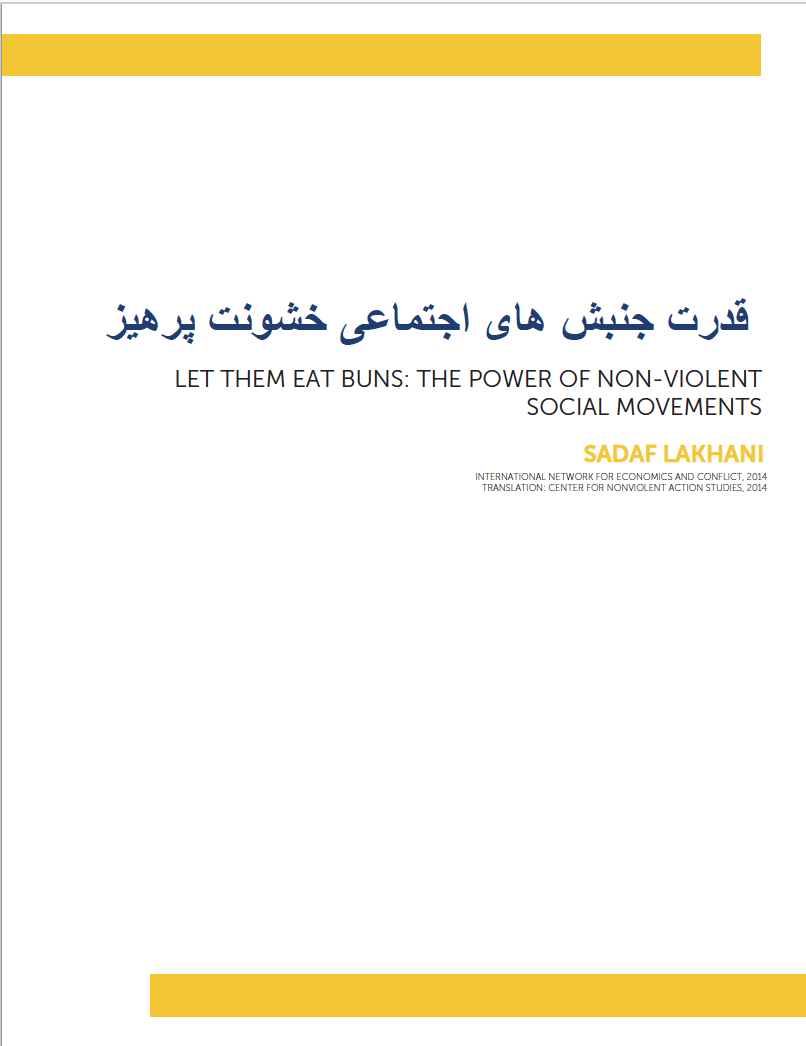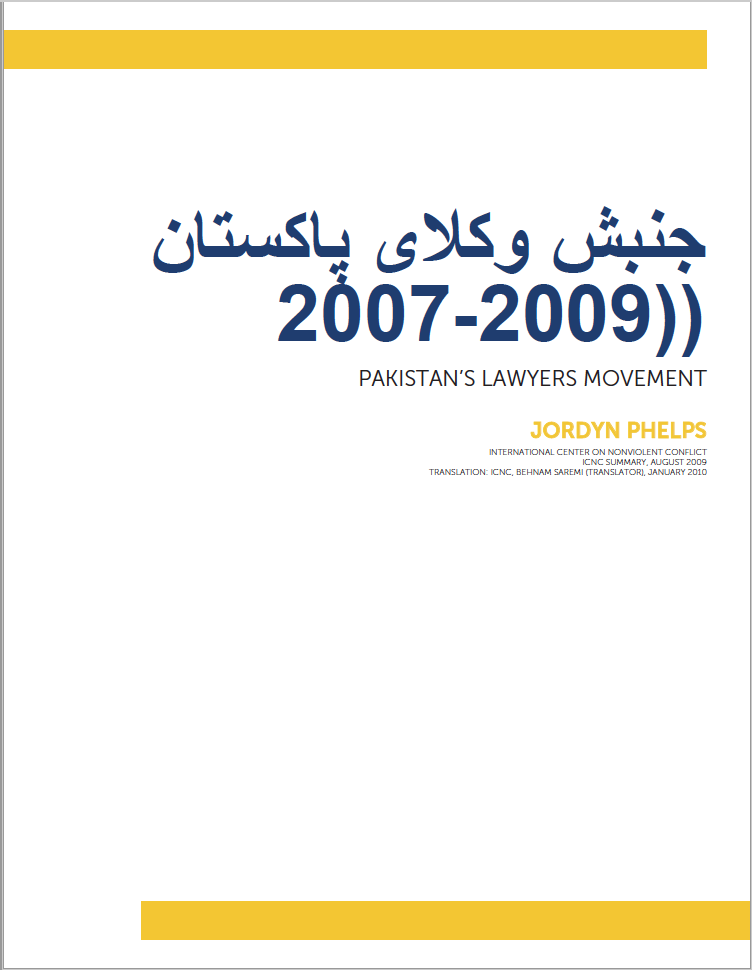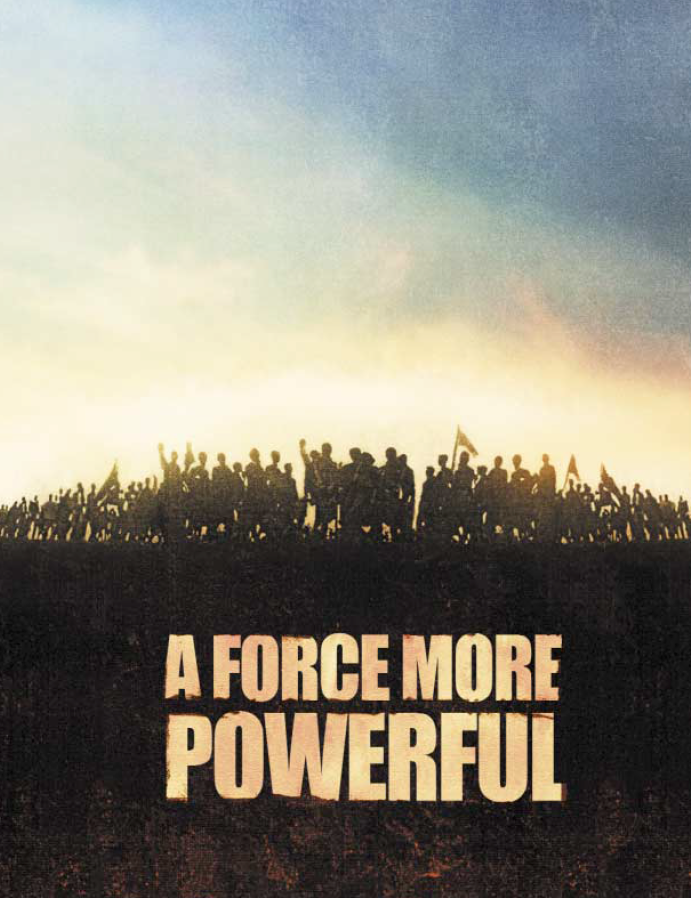سازماندهی پس از جنبش اشغال وال استریت
زمان آن فرارسيده که ببينيم چگونه میتوان دموکراسی را به آمريکا آورد. ما از راه مشارکتمان در جنبش » وال استريت را اشغال کن« شاهد بوديم که میتوان يک جنبش انقلابی عليه اقتصاد فاسد سرمايه داری و سيستم سياسی تحت کنترل عدهای معدود از ثروتمندان ٬ به وجود آورد. اکنون زمان آن رسيده است تا با خلق رهيافتی برای اين جنبش ٬ آن را پيروز کنيم.
thenation.com, June 18, 2014
ترجمه: Center for Nonviolent Action Studies, July 2014
Published in the July 7-14 print version of “The Nation,” and on thenation.com
